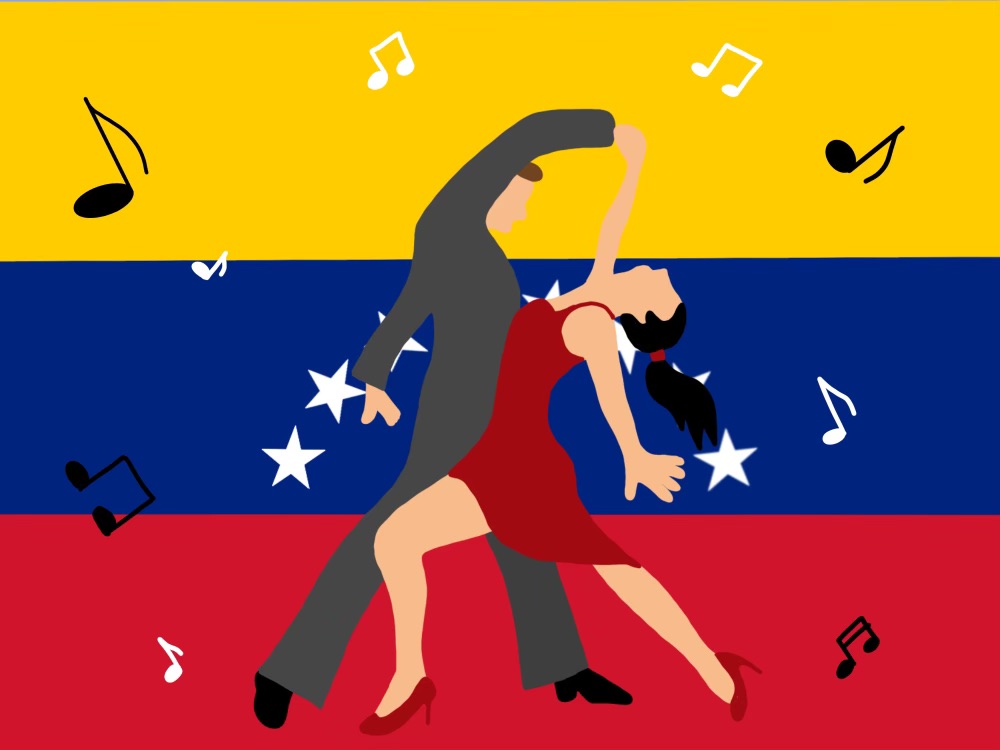I am a first-generation American daughter of two Venezuelan immigrants. Spanish was my first language until I started preschool, where I picked up English from my peers and teachers.
I felt pretty connected to my culture throughout my life at home. My family made arepas and empanada

s. I would visit Venezuela when I was younger, and my family events included Latin music like Reggaeton or Merengue.
Even though my parents made tremendous efforts to keep me connected to my roots, living in New York, I wasn’t surrounded by other Latinos. The last time I went to Venezuela I was six. I was speaking in English for eight consecutive hours at school.
I would tell people at school that I spoke Spanish and some would make racist and xenophobic jokes. They told me I didn’t “look Latina” and asked me to prove it by speaking Spanish — as if I were some sort of spectacle.
I think back to the days of attending day camp in Caracas, where I downed bags of Pepitos and frequented the beautiful beaches. When I close my eyes, I can still recall the excitement of weddings in Venezuela, and how Daddy Yankee dominated the scene.
Moments do not last forever, and as I spent more time immersed in American culture, I didn’t feel Latina anymore. My Spanish suffered from lack of practice, as I only spoke with my family. I started preferring to speak English instead of Spanish.
Around the time I started middle school, my Venezuelan friends that lived in places like Miami and Chile introduced me to Reggaeton songs that were popular at the time. I was fascinated with popular Reggaetoneros — Nicky Jam and J Balvin — who were beginning their rise to fame.
I grew obsessed with the rapper Benito Antonio Martínez Ocasio, who you might know as Bad Bunny. Since 2016, he has claimed real estate on my Spotify account as the most-played artist on wrapped for almost five years now.
Bad Bunny’s lyrics struck a chord with me every time. “Amorfoda” always hit me right in the feels. “La Romana” and “Safaera”are my go-to party anthems. “Yo Visto Asi” gave me the confidence I needed to be proud of myself. Benito’s latest album “Un Verano Sin Ti” taught me that Latinos can break through the language and culture barrier to reach global audiences.
Soon enough after my initial reintroduction to Latin music, it was all I wanted to listen to. I had hundreds of different playlists of Reggaeton, Latin trap, Salsa, Bachata and Merengue for any occasion.
I specifically liked Salsa and taught my American friends how to dance as I do at Venezuelan parties. I constantly played new and old Latin hits everywhere I went — whether it was in the car or at the beach. I became the queen of Perreo and went crazy every time someone would play Reggaeton at a party.
Many years after my reintroduction to my culture, I’ve never felt more Latina. I make traditional Venezuelan foods in my college apartment for my friends. I joined Sabor Latino at BU to dance with fellow lovers of Latino culture. My Spanish fluency is thriving once again. I also saw Bad Bunny and Carlos Vives in concert this year.
Music played a significant role in my reconnection to Venezuelan roots. I used to shy away from my culture, due to ignorant comments about being Hispanic. However, I could not be more proud now. My latin sazón makes me who I am.
Siempre estaré orgullosa de ser Latina.




















































































































